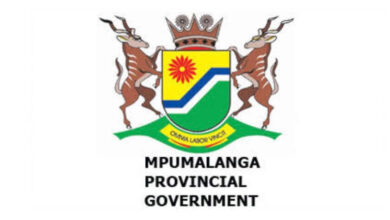Trade-Mark – ‘Enabling artisans from the townships to succeed’

In the South African townships, artisans are struggling to find job opportunities. To address this challenge, Joshua Cox created in 2008 the platform Trade-Mark, which connects home owners who need a renovation with professional and reliable artisans. From a simple idea, Trade-Mark became a successful social-enterprise which is growing very fast, mostly thanks to the word of mouth. In the following interview, Joshua explains us how his organization works and how he wants to develop it.
 Joshua Cox, founding director of Trade-Mark (third from the left), with three tradesmen helped by the social-enterprise
Joshua Cox, founding director of Trade-Mark (third from the left), with three tradesmen helped by the social-enterprise
SparkTour Africa: Why Trade-Mark was created?
Joshua Cox, founding director of Trade-Mark: Trade-Mark was created to address a specific challenge that artisans in the townships face. If you look at painters, pavers, tillers and carpenters from these communities, they struggle to secure their ongoing business. They don’t have credibility, so people don’t trust that they will be reliable and professional. In addition to that, they don’t have the skills to market themselves effectively.
‘Trade-Mark was created to address a specific challenge that artisans in the townships face.’
How does Trade-Mark work exactly?
If a home owner is looking to do a renovation at his house, or a business man at his offices, he would go to our website www.trade-mark.co.za, send a request and we would connect him directly to one of our artisans. Each artisan has been put through a very strict selection process to ensure that they are reliable, professional and skilled in their trade. The home owner will deal directly with the tradesmen, negotiate the price, and decide when the job will start.
‘Each artisan has been put through a very strict selection process to ensure that they are reliable, professional and skilled in their trade.’
What is the business model?
We are structured as a social-enterprise, not as a charity. Our principal revenue stream at this stage is to charge our tradesmen with a commission of 15% for every job that we secure. The tradesmen are paying us for a service. It is not a hand-out, but a dignified transaction with them.

You had the idea in 2008, what are the results of Trade-Mark today?
These things are often just reduced to number when you look at achievements. The numbers are fairly impressive. Over the last 18 months, we have managed to generate 0.5 million rands for our 12 tradesmen. Otherwise, they would not have had these revenues. But what excites me is of course the social impact for our tradesmen. Two of them were able to have a wedding, some of them bought their first car, paid for tertiary education for family members, built new homes… That is what motivates me!
‘What excites me is of course the social impact for our tradesmen.’
Can you give three words to describe the spirit of Trade-Mark?
‘Enabling’, because all we do is create opportunities for tradesmen to succeed and the rest is up to them. They have a big responsibility on themselves. That is the key word, I can’t add more words!
What was the biggest challenge since the creation?
The biggest challenge for me has been the fact that I have been working on the project part-time. It means that during the first years the development of the project was very slow. In this case, it was hard to stay motivated as I did not see the progress every day.
How do you see Trade-Mark in 10 years?
I would like to see Trade-Mark operating in all the major cities around South Africa, impacting lives of thousands of tradesmen and their families. I would like also to explore how Trade-Mark can be applied in other developing countries, such as Brazil or India where there is a great disparity in wealth between the rich and the poor. There is a distrust and a lack of connection between these two communities, and Trade-Mark can help to bridge the gap.
‘I would like to see Trade-Mark operating in all the major cities around South Africa.’
Before launching Trade-Mark, you worked a lot in the NGO space in South Africa, and now you become a social-entrepreneur…
NGOs and charities have a crucial role to play in social development and environmental impact, but I do think that social-enterprise is the most exciting, in terms of organizations that are founded on strong business principles and are not reliant on donor founding. There is a lot more freedom with social-enterprises, because you can organize how you spend the money only by yourself.
Today, a lot of young South Africans want to embark on an entrepreneurial adventure to help society. Do you have a piece of advice for them?
The best way to get involved in this type of work is just to familiarize yourself with what is happening in the social-enterprise space. I do a lot of reading about other projects to know how they are working and what inspired them. Second thing would be to look at your own experience, because inspiration comes very often from something happening in our lives.
‘Inspiration comes very often from something happening in our lives.’
A last word?
It is so rewarding to be working as a social entrepreneur. It is unique because you have to consider in the same time how you maximize your social impact, and how you make a viable successful business.




